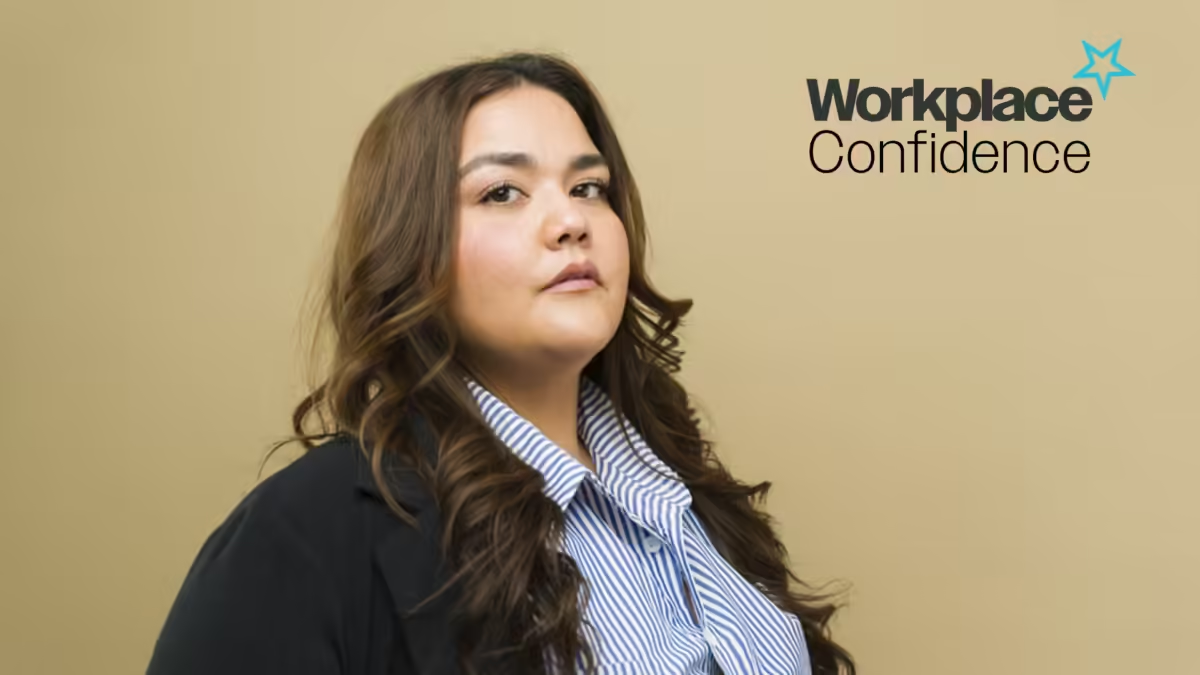
How to stop saying sorry at work
How to stop saying sorry at work. Are you or your colleagues guilty of saying "sorry" a bit too much at work? You’re not alone - over-apologising is a common habit and it can undermine our authority and confidence without us even realising it.
When we constantly say sorry, we subtly communicate that our needs, ideas or presence are less important.
This habit is regularly an issue for women at work, who may feel the need to apologise just for speaking up or taking up space. It’s a subtle but powerful behaviour that can hold us back professionally.
I was discussing workplace confidence in a webcast this week with 400 colleagues at a global engineering firm and one director admitted she kept finding herself apologising - for asking a question, for interrupting, even for offering her own opinion! It made me think: Why do we say sorry so much, and what can we do about it?
Do you keep saying sorry at work?
Here are some common scenarios:
- Clarifying questions: You’re in a meeting, you need to clarify something, and you hear yourself say: "Sorry, can I just ask...?"
- Asking for help: You apologise for needing assistance on a project, saying things like, "Sorry, could you help me with this?"
- Sharing your ideas: You catch yourself saying, "Sorry, I'm just going to add my thoughts" or "Sorry if this is a silly question" when offering your input.
Before you know it, this habit becomes second nature, taking away from the confidence you’re trying to project.

Bit Famous works with businesses and organisations to help them communicate with confidence.
By Penny Haslam
MD and Founder - Bit Famous
FREE resources for leaders and people professionals from Penny Haslam and Bit Famous
Share this page
Where people professionals share the great work they do!

Why do we say sorry so much?
- Habit: Sometimes, saying sorry is simply a habit - one of those things you do without thinking. It’s a behaviour that becomes automatic over time and before you know it, you’re apologising for things that don’t require an apology.
- People-pleasing: Apologising can also be a symptom of people-pleasing. It’s about trying to smooth things over, making sure no one’s ruffled and always being agreeable. For some of us, saying sorry is a way to ensure we’re not causing any discomfort or inconvenience to others, even when it’s unnecessary.
- Uncertainty about the workplace dynamic: Often, over-apologising stems from feeling unsure about your place in the workplace dynamic. You might not be used to commanding space or asserting yourself, which makes you more likely to apologise as a way to ease any perceived tension. It can be about trying not to seem too demanding or imposing but ultimately, it chips away at your confidence and makes you feel like you’re not allowed to fully participate.
How to kick the saying sorry habit
The good news is that you can change it. I’ve got three simple ways to start kicking the sorry habit at work - and no, it doesn’t involve carrying around a 'sorry jar' to put a pound in every time you say sorry.
- Raise your awareness: The first step is to pay attention. Notice when you’re saying sorry. Is it in certain meetings, when you’re with specific individuals or in particular situations? Is it when you need something specific or when you’re asking a question? Make a mental note of these moments, or even jot them down in a notebook. It's like solving a little mystery - tracking when, where and with whom the word crops up. If you know when you’re most likely to say it, you’ll be better prepared to change it next time.
- Get colleagues involved: Here’s where it gets fun - get your colleagues involved! Ask them to flag it whenever they catch you apologising unnecessarily. You could even make it into a bit of a challenge. Maybe go for “No Sorry Month,” and see how long you can last without using the word. The key here is accountability and sometimes it helps to have others gently reminding you that you don’t need to apologise for speaking up. Plus, celebrating a “no-sorry” victory together is a great morale booster.
- Reframe your words: Finally, give your brain some alternatives. Here are three "no sorry" options you can use: Instead of saying, "Sorry for interrupting," try saying, "Thanks for your time." Replace "Sorry if this is a silly question" with "Here’s my question." Instead of "Sorry for being unclear," say, "Let me clarify that for you."
It might feel awkward at first, but practice makes perfect. Write down these alternatives, think up your own and rehearse them out loud until they start to feel natural. As I say, it’s about adopting that sense of neutral authority - you’re not imposing, you’re participating.
Think of it like this: every time you say sorry unnecessarily, you’re chipping away at your own confidence, even if just a tiny bit.
By becoming more aware, asking for a bit of help and reframing your language, you can start to shift those habits. And who knows? Maybe you’ll inspire those around you to stop saying sorry so much too.
Have a "no-sorry" day!












